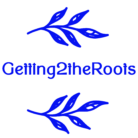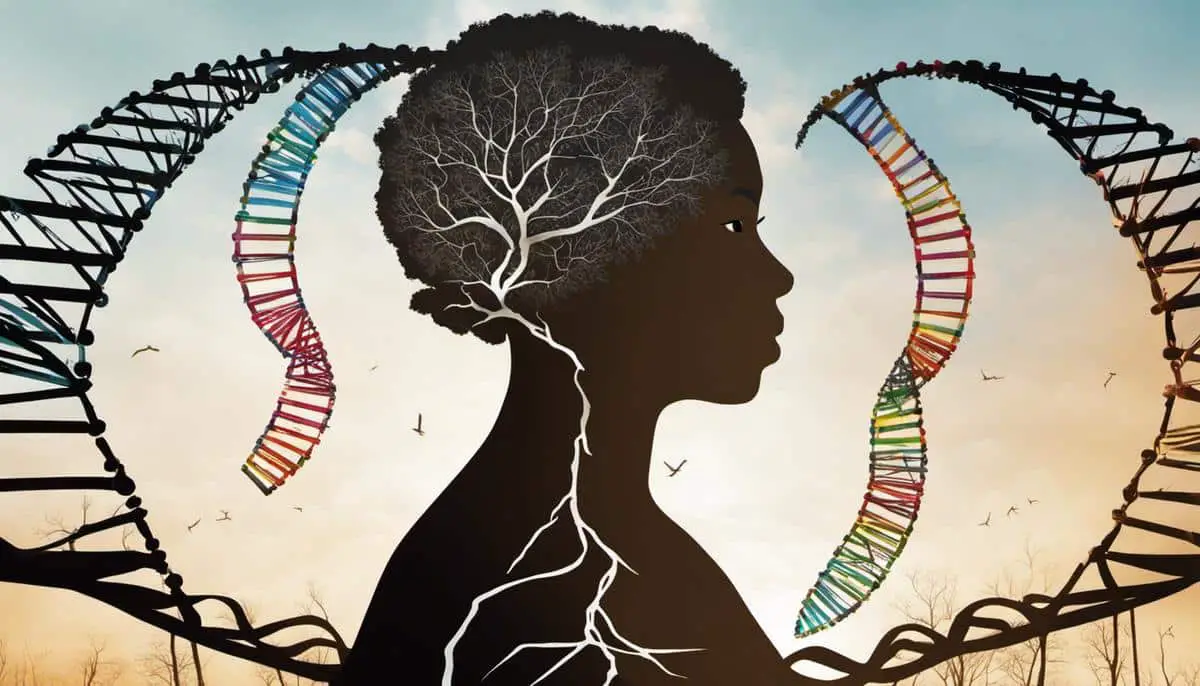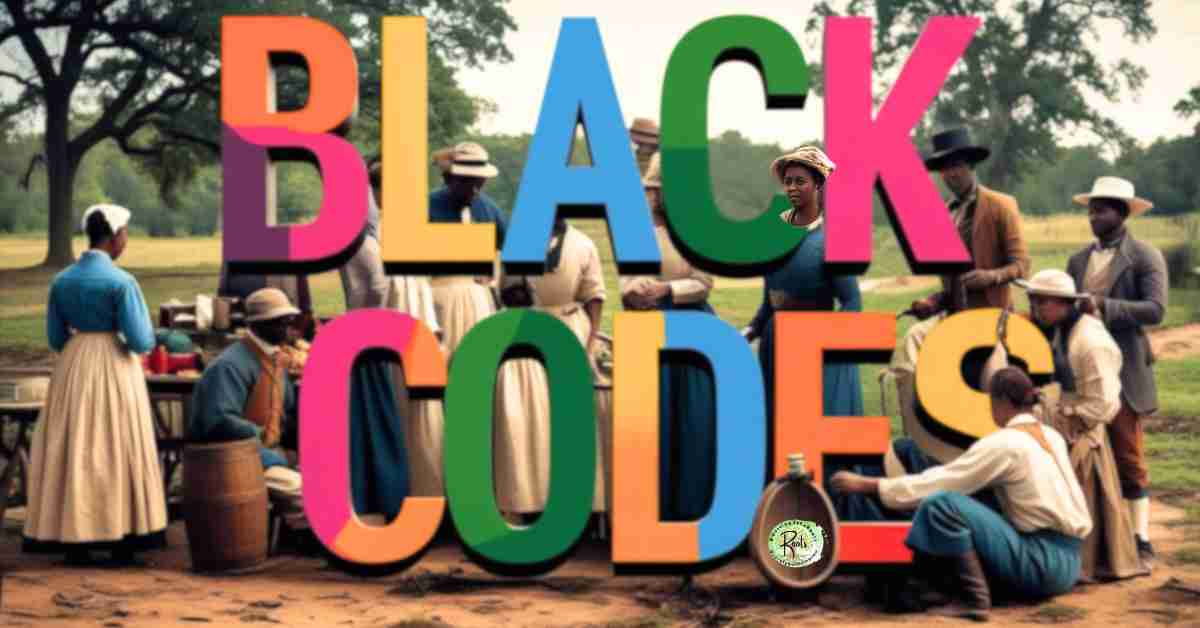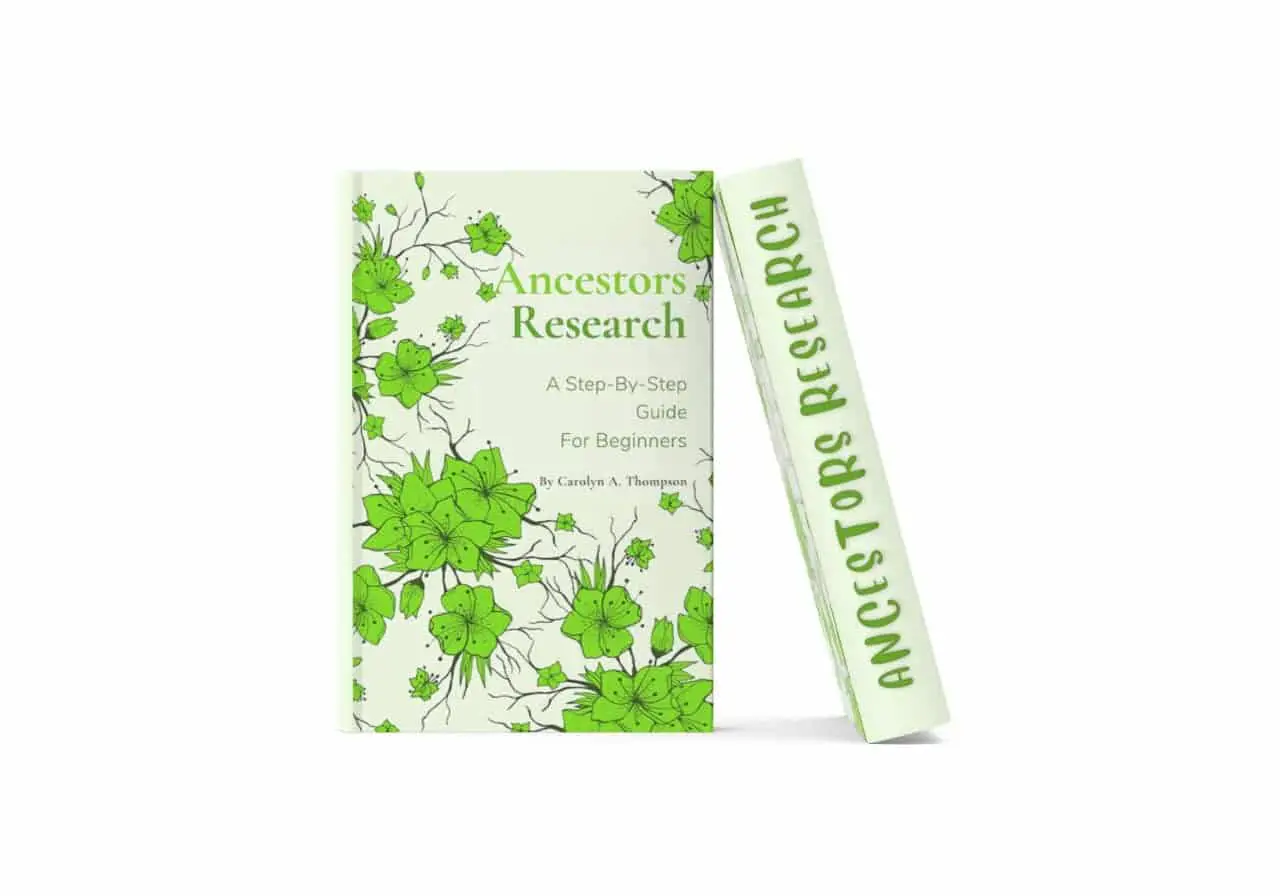DNA Tests for African Americans offer a gateway to uncovering the intricate tapestry of genetic identities that has often been brushed over in everyday discourse. With advanced DNA testing technology, exploring the complex world of genetics and ancestry is now more accessible than ever
For African Americans, this presents an extraordinary avenue to delve into the depths of their genetic roots, a journey that crosses continents and centuries, preserving identity and securing lineage.
This exploration importantly sheds light on the integral connection between their genetic profiles and their identities, unveiling the profound influence our genes bear on who we are.
When we look at the rapidly growing market for DNA tests for African Americans, we can better understand how comprehensive yet targeted DNA tests are in giving us important information about our genetic background.
With a cautious approach to interpreting test results, coupled with an understanding of potential complexities, we enable ourselves to draw meaningful, accurate conclusions from the jigsaw puzzle of genetic expressions.
Genetics, Ancestry, and Identity
Unraveling Genetic Heritage: DNA Testing for the African American Population
DNA testing, or genotyping, is an irreplaceable tool in our contemporary quest for understanding human identity, particularly when it comes to unearthing the unseen genealogical history embedded in our cells.
As one delves into this topic, it becomes increasingly evident that DNA testing carries profound significance for the African American population.
Within every human cell, enveloped in the nucleus, are 23 pairs of chromosomes—rod-like structures composed of long, coiled strands of DNA.
Every gene, every single genetic instruction that builds and operates a unique human being, resides in these chromosomes. Our biochemical identities, in essence, are inscribed here.
DNA tests for genealogical purposes look at two specific kinds of genetic materials:
- Mitochondrial DNA (mtDNA) and Y-chromosome DNA.
- MtDNA is passed down from the mother to all her offspring, making it a valuable resource for tracing maternal lineage.
- On the other hand, Y-chromosome DNA is passed from father to son, revealing paternal lineage.
🧬 Explore Your Ancestral Journey! 🧬 Unlock the mysteries of your paternal lineage with our latest article, “Secrets of Paternal Lineage DNA.” Dive deep into your genetic history and discover the stories your DNA has to tell. 🔗 Read Now 🔗
Nevertheless, these tests alone cannot paint a comprehensive picture of an individual’s ancestry, as they exclude the genetic contribution of ancestors not in the direct maternal or paternal line.
The African American population, with its complex history of migrations, slavery, and race mixing, cannot fully rely on these two types of DNA tests alone for ancestral tracing.
Here, the utility of autosomal DNA testing comes into sharp relief. Autosomal DNA includes the 22 pairs of chromosomes that aren’t sex-linked.
These chromosomes are subject to “recombination,” which shuffles genetic information with each generation, thereby offering a more nuanced glimpse into one’s ancestral past.
Importantly, this type of testing can reveal an estimation of an individual’s ethnic heritage, tracing the lineage from all ancestors and not just the direct maternal or paternal line.
The African diaspora, originating from the transatlantic slave trade, has scattered African descendants globally, further complicating the task of tracing African American genetic ancestry.
Consequently, understanding this group’s genetic makeup requires more than just conventional genotyping—it demands rigorous engagement with historical records, archaeological data, and deeper dives into population genetics.
In applying this multi-pronged approach, DNA testing for African Americans has unveiled the profound genetic diversity within the population.
Research reveals that most African Americans are genetically mixed, inheriting approximately:
- 80% African.
- 19% European.
- 1% Native American DNA on average.
These figures, however, fluctuate greatly from individual to individual, highlighting the diverse genetic tapestry of African American ancestry.
DNA testing plays an instrumental role in revealing our obscure genetic past. For the African American population, this scientific tool offers more than a mere technical reading of chromosomes.
It provides a powerful mirror reflecting a centuries-old cultural saga written in the language of genes—an inherited narrative of resilience, dynamism, and unparalleled diversity.
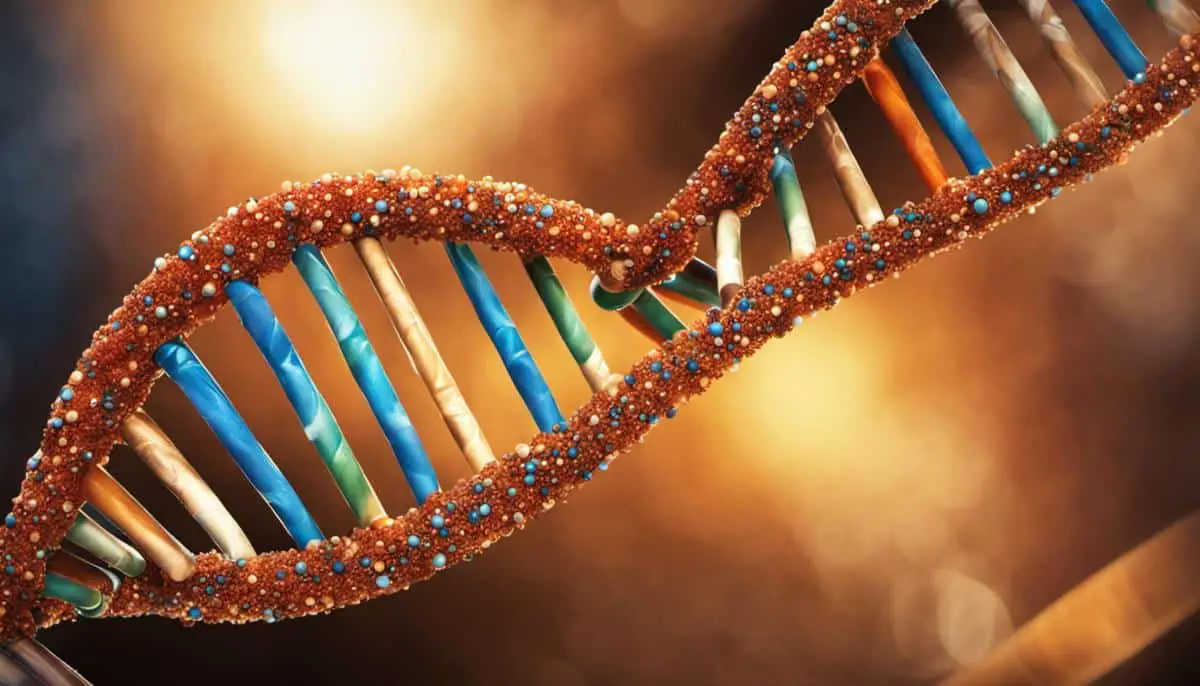
Navigating the DNA Testing Landscape for African Americans
Ancestry: A Leader in Genetic Genealogy
Transitioning into the modern advances of genetic genealogy, there’s a blossoming array of DNA testing companies emerging as pioneers in furnishing African Americans with detailed and authentic ancestral information.
Ancestry prominently stands out among these, establishing an impressive database consisting of over 18 million individuals.
For African Americans who are on a quest to uncover their roots, engaging with Ancestry’s expansive database augments the probability of unearthing a genetic match, which is instrumental in delineating a more comprehensive portrayal of one’s lineage.
Innovative Genetic Community Technology
Advancing further, Ancestry enriches its offerings through the integration of a groundbreaking feature known as genetic community technology.
This breakthrough accelerates the investigation of clusters of individuals linked by extraordinarily high levels of matching DNA, indicating a common ancestor.
Concerning DNA tests for African Americans, this technological stride unveils pivotal revelations concerning their obscured ancestral lineages.
MyHeritage: A New Perspective in DNA Testing
Venturing into another remarkable contributor in the realm of DNA tests for African Americans, MyHeritage offers a fresh perspective.
Despite possessing a smaller database in comparison to giants like Ancestry, MyHeritage strives to furnish specific and compelling insights into African American ancestry.
Their approach is carved to deliver direct, albeit less exhaustive, pathways in tracing the richness of African heritage.
The Dynamic Progression of DNA Testing
Navigating the DNA testing terrain necessitates an acknowledgment of its evolutionary nature.
The scientific framework that governs DNA tests for African Americans is perpetually evolving, with enhancements in accuracy and precision emanating from continuous research and the subsequent enlargement of databases.
It’s imperative to embrace the nuanced complexities embedded within the genetic heritage explored through these tests.
Conclusion: Unveiling the Tapestry of Ancestry
Concluding the exploration of DNA tests for African Americans, the process of unraveling one’s ancestral tapestry can be perceived as a monumental undertaking.
However, the profound insights garnered from comprehending one’s ancestral origins resonate with unparalleled significance.
The current landscape, enriched by platforms like Ancestry and MyHeritage, facilitates a profound exploration into the mysteries encapsulated within the DNA of African Americans, illuminating the pathways to unearthing their intriguing ancestral stories.

Interpreting DNA Test Results for African Americans
In the flourishing field of genetic genealogy, a wave of advancements has unfurled new horizons for African Americans eager to unearth the mysteries of their ancestry with enhanced precision.
A diverse ensemble of genetic testing companies has blossomed, each carving a unique niche fortified with specialized attributes.
Amongst these luminaries are Ancestry, African Ancestry, FamilyTreeDNA, and the notable inclusion of SelfDecode, each tailoring their services with a finesse that resonates with the distinct needs of African Americans.
Ancestry: A Confluence of Comprehensive Connections
Ancestry shines with an illustrious database that stands as a monumental repository in the genetic genealogy arena.
It nurtures an environment where connections flourish, bridging individuals with the rich tapestries of their shared ancestral legacies.
Their pioneering Genetic Communities technology stands as a testament to innovation, fostering connections that flow through the rivers of shared genetic markers and mutual ancestral bonds.
FamilyTreeDNA: A Tapestry of Genetic Diversity
FamilyTreeDNA in its majestic unfoldment, presents a realm replete with tools meticulously crafted to illuminate the pathways of ancestry with renewed clarity and depth.
It stands as a beacon that guides individuals through the intricate mazes of their African American ancestries, unveiling layers woven with historical threads and genetic tales.
African Ancestry: A Symphony of Specificity and Precision
African Ancestry orchestrates a symphony of services, tuned with a remarkable focus on individuals of African descent.
Their selection echoes with a symphony of precision, leading African Americans on a voyage filled with discovery and an enriched bond to the unique ethnic territories across the extensive African landscape.
SelfDecode: A New Lens of Personalized Insight
SelfDecode enters the stage with a flourish, bringing a personalized lens to the exploration of ancestry.
While primarily renowned for health reports based on genetic data, its platform can also provide intriguing insights pertinent to ancestry
It becomes a valuable ally for those keen on intertwining aspects of health with the rhythms of their ancestral narratives.
Conclusion: The Harmonies of Discovery and Connection
In the grand orchestra of genetic exploration, each company, including African Ancestry, FamilyTreeDNA, African Ancestry, and SelfDecode, composes unique melodies of discovery.
The selection process thus becomes a personal symphony, where each individual finds the rhythms and resonances that align with their aspirations and the unique harmonies of their ancestral songs.
It’s a concerto of exploration, rich with the dedications of science and the melodies of our interconnected human histories.

Conclusion: Navigating the Landscape of Genetic Discovery
In the expanding universe of DNA testing technologies, our vision is now augmented, unveiling the complex tapestry of our genetic origins with nuanced precision.
Examining African American-centric DNA testing closely, it emerges as a powerful tool that fosters a transformative reconnection to one’s ancestral roots.
This journey through our genetic tapestry doesn’t merely affirm that our identities are woven with the threads of our ancestry. But it amplifies our understanding, positioning us as both inheritors of our past and sculptors of our future.
In the midst of this flourishing popularity, a shadow of caution is cast, reminding us of the potential contours of misinterpretation and error that may emerge.
Thus, armoring ourselves with a fortified understanding and a vigilant perspective becomes essential in navigating the terrains of interpretation.
By doing this, we not only unlock the vast reservoirs of insight that these tests offer but also set out on a profound journey of self-discovery, self-realization, and a richer and closer communion with our ancestry.
This exploration, steeped in curiosity, unfolds pathways of self-discovery, nurturing a blossoming understanding of ourselves.
Frequently Asked Questions (FAQs)
- How does African American-centric DNA testing enhance our connection to our ancestry?
- These tests facilitate a profound reconnection to one’s roots, allowing individuals to explore their past and enhance their understanding of their identities.
- What should one be cautious of when interpreting DNA test results?
- One should be vigilant of potential misinterpretations or errors, approaching the interpretation process with a well-informed and critical perspective.
- How does the increasing popularity of DNA tests affect their reliability?
- As tests gain popularity, the possibility of encountering misinterpretations or errors may increase, necessitating a more cautious and educated approach.
- What is the significance of exploring our genetic makeup?
- Exploring our genetics isn’t merely an act of curiosity; it is a transformative journey toward self-discovery and a deeper understanding of our identities.
- How do DNA tests contribute to our understanding of ourselves?
- DNA tests unveil intricate details of our ancestry, contributing to a richer comprehension of our identities and our connections to the past.
